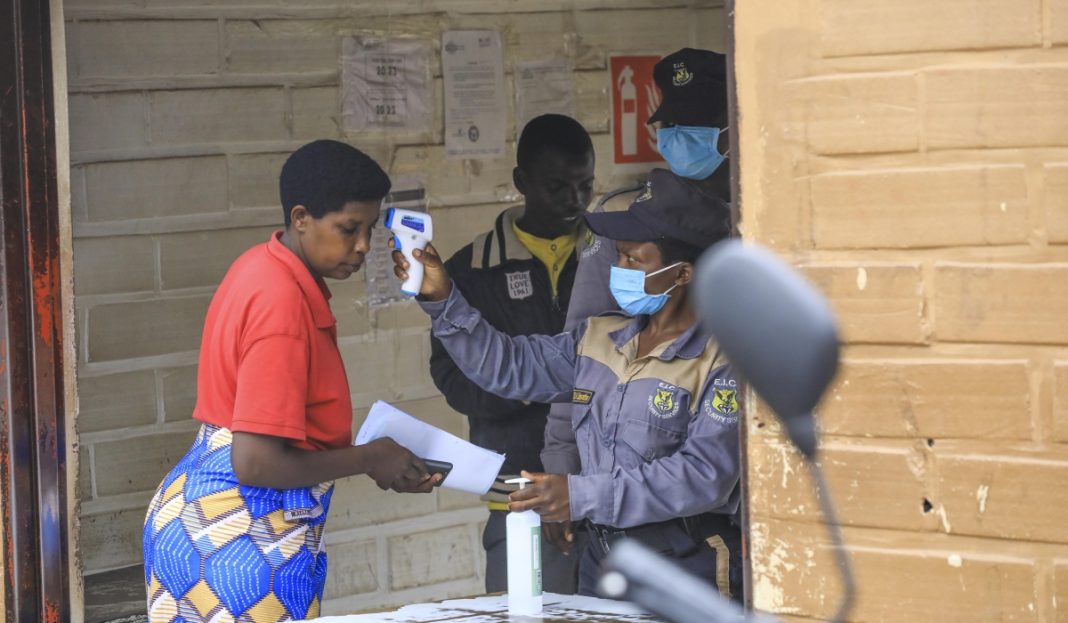In various public locations across Rwanda, stringent health measures are being enforced to curb the spread of the Marburg virus.
At New Life Bible Church in Kicukiro and the University Teaching Hospital of Kigali (CHUK), it is mandatory for all individuals entering these facilities to sanitize their hands before undergoing a temperature check. This was observed by The New Times on Tuesday, October 8.
If a person’s temperature is above 36°C, they are required to wait for 10 minutes before a second check. If their temperature falls within the normal range, they are permitted to enter; if not, health authorities are contacted for further assessment.
These precautions are part of the government’s broader strategy to combat the Marburg virus, which emphasizes regular handwashing with soap and clean water, avoiding large gatherings, and limiting contact with individuals or items that may be contaminated.
In busy areas such as Nyabugogo taxi park, handwashing stations are provided for public use prior to entry. Many retail outlets, restaurants, supermarkets, and shopping malls also feature handwashing facilities or sanitizers. Observations indicate that the public is actively adopting basic hygiene measures, with some individuals opting to wear face masks, although this is not a current requirement according to the Ministry of Health’s guidelines.
Additionally, public spaces are required to conduct temperature checks and health screenings to facilitate early detection and isolation of potential cases. Preventing contact with the bodily fluids of infected individuals is essential in reducing transmission risks.
On October 6, the Rwanda Governance Board (RGB) issued supplementary guidelines aligned with the Ministry of Health’s directives, specifically for religious institutions. Religious leaders must now enforce preventive measures within places of worship, encouraging congregants to adhere to health protocols, avoid high-risk behaviors, and practice good hygiene to limit the spread of the virus.
Churches and mosques are advised against practices such as serving Holy Communion in ways that could heighten the risk of virus transmission. Leaders are urged to implement safety measures during religious rituals to minimize exposure.
Religious communities have been reminded that performing farewell rituals for deceased individuals within places of worship is prohibited, and people are strongly discouraged from approaching or handling the bodies of those who have died from the virus.
Across the nation, Rwandans are advised to avoid gatherings and refrain from contact with individuals or objects that may have been exposed to the virus. Handling the body of someone who has succumbed to Marburg is strictly forbidden.
On October 6, Rwanda commenced a trial vaccination campaign aimed at individuals at the highest risk of contracting the Marburg virus, particularly healthcare workers.



